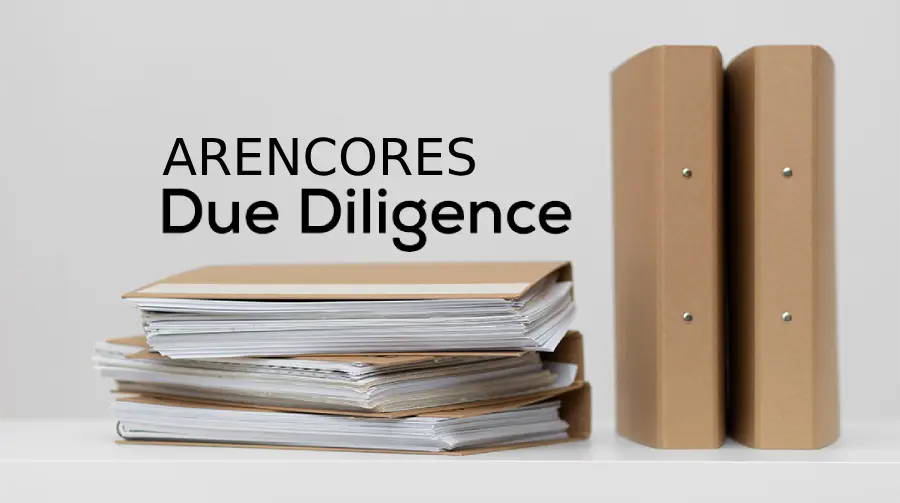Chania Property Buyers Guide
Looking to purchase your first home in Chania? Perhaps you’re searching for a family home, a luxurious villa, or a plot to build your next project. What factors should you consider, and what pitfalls should you avoid? Our comprehensive tips and how-to guides cover every aspect of buying a property you can truly call home.
The Four Types of Real Estate.
Real estate can be classified into four main categories:
- Residential: This category includes homes for families, whether newly constructed or resale properties. It encompasses a variety of housing options such as apartments, townhouses, detached houses, villas, and vacation homes.
- Commercial: Commercial real estate primarily consists of properties used for business purposes. This category encompasses shopping centers, malls, office buildings, and hotels. Additionally, apartment buildings are often classified as commercial due to their income-generating potential through platforms like Airbnb and Booking.
- Industrial: Industrial real estate comprises buildings and warehouses used for manufacturing, research, development, storage, and product distribution. These properties play a crucial role in supporting various industries and economic activities.
- Land: Land includes undeveloped parcels, farms, and ranches, as well as plots earmarked for future construction. It represents both raw, undeveloped land and sites undergoing development for residential, commercial, or industrial purposes.
Understanding these distinct categories of real estate is essential, as each type comes with its own set of dynamics and considerations for buying and selling. Additionally, various processes such as zoning regulations, construction, and property valuation are managed by specialized professionals to ensure the smooth functioning of real estate transactions.

The Real Estate Buying Process
The specific steps in a real estate transaction can vary depending on the type of property and the parties involved, such as the owner, seller, real estate agent, lawyer, engineer, and surveyor. However, the majority of property buying transactions follow a similar overall process.
To ensure clarity and simplicity, we’ll outline the property buying process in Chania, Crete, using a residential transaction as an example. While commercial and industrial transactions follow a similar process, residential transactions are the most common among consumers, with nearly 70% of Chania families owning their homes.

1. Hiring a Real Estate Agent
When deciding to buy a home, you have two options: secure a real estate agent to help you find a property or start shopping on your own and hire an agent later. SYMENOX – Real Estate Association of Chania is an excellent starting point for finding a certified real estate agent.
While there’s no definitive way to hire a buyer’s agent, having one can introduce you to properties you might not find on your own. For instance, ARENCORES offers a service called Passive Listings, where sellers list properties in a private database to assess value, market price fluctuations, selling potential, risks, and other parameters. This method can be beneficial due to the lower risk associated with passive real estate listings, also known as Passive Real Estate Listing Trusts (PRELTs).
Interviewing and securing a professional real estate agent early in the process can be more rewarding than relying solely on the listing agent. Buyers can benefit from having representation and consultation throughout the process.
In Chania, not all agents work full-time; many have other jobs or commitments. As a property buyer or seller, you need to decide on the level of service and professionalism you require. In a fast-moving real estate market, it’s crucial to stay informed and know how to negotiate effectively.
Availability is key. Determine the agent’s preferred communication methods and understand what to expect in terms of responsiveness. While no one is available 24/7, find out how they plan to handle situations when they can’t be present.
Selecting the right property that meets all your requirements is crucial. Therefore, hiring a real estate advisory firm to guide and support you in identifying your property is highly recommended.
2. Property Viewing
As a property buyer in Chania, this crucial step involves diligent research, thorough comparison, and multiple property viewings. The process typically begins with utilizing global and local real estate platforms such as Zillow, Trulia, Spitogatos, and Spiti24 to identify potential properties that fit your budget and preferences.
These platforms provide a wide range of listings, offering detailed descriptions, photos, and often virtual tours to help you narrow down your options before visiting in person. You can explore these platforms via the following links:
Once you have shortlisted properties, it’s essential to request viewings to evaluate each property’s unique characteristics and overall suitability. During these initial viewings, pay close attention to the property’s location, condition, and amenities. Important features to consider include:
- Parking: Availability and convenience of parking spaces.
- Swimming Pool: Presence, condition, and maintenance of a swimming pool if desired.
- Interior Spaces: Layout, room sizes, and overall condition of interiors.
- Balconies: Number, size, and view from the balconies.
- Solar Panels: Presence and functionality of solar panels for energy efficiency.
- Security Systems: Existing alarms and other security features.
- Elevator: Presence and condition, especially important for multi-story buildings.
After these preliminary viewings, it is advisable to schedule dedicated showings with your real estate agent. These showings allow for a more in-depth examination of the property and provide an opportunity to ask specific questions about the property’s history, any potential issues, and the neighborhood.
A thorough walkthrough with your agent can also help you understand the property’s value and its potential for appreciation, assisting in making an informed decision about your next steps.
By methodically researching, comparing, and viewing properties, you ensure that you make a well-informed purchase that aligns with your needs and investment goals in the vibrant real estate market of Chania.
FAQs During a Property Viewing
- Why is the seller moving? Understanding the seller’s motive can offer insight into negotiation potential.
- What’s included with the property? Ensure clarity on fixtures, appliances, and additional items staying or going.
- How old is the roof? Assessing roof age helps gauge potential future expenses and mortgage eligibility.
- What about the heating and cooling system? Knowing the system’s age and efficiency informs future maintenance or replacements.
- Are there any disclosures? Learn about potential hazards like lead paint or asbestos that sellers are obliged to disclose.
- Are there known issues? While not obligatory, sellers often disclose significant problems to avoid surprises during inspection.
- Have there been renovations or additions? Understanding past changes informs property value and potential permit issues.
- How’s the water pressure? Checking water flow ensures comfort and helps anticipate any necessary fixes.
- Has the property been surveyed recently? Knowing property boundaries and markers prevents disputes over land ownership.
- Are there any easements? Understanding easements helps anticipate any limitations on property use or alterations.
Is Buying a Property in Crete a Good Investment?
We asked 45 property purchasers. Here’s what they said.
3. Due Diligence
In the world of real estate, doing your homework, also known as due diligence, is like putting on your detective hat before sealing the deal on a property. It’s all about digging deep to uncover the nitty-gritty details that might impact your investment. Whether you’re buying, selling, or investing, due diligence is your way of ensuring you’re making a well-informed decision and avoiding any surprises down the road.
For buyers, investors, developers and contractors ARENCORES' Due Diligence and Assessment services provide timely insights to assit decison-making. We’re proud to be nationally ranked as a top 30 provider of residential real estate due diligence services and trusted by clients for 20 years to quickly evaluate the challenges and opportunities associated with a wide range of property types.
Picture this: You’re not just browsing through property listings; you’re diving into legal documents, zoning laws, and permits to make sure everything checks out. You’re also crunching numbers, poring over financial records, taxes, and loans, to understand the property’s true value and potential financial risks.
And let’s not forget the boots-on-the-ground part – walking through the property, inspecting every nook and cranny, checking for any red flags like leaky roofs or faulty wiring.
Ultimately, it’s about peace of mind. By doing your due diligence, you’re not just crossing your T’s and dotting your I’s – you’re making sure you’re making a smart move, one that sets you up for success in the complex world of real estate.

In a property transaction, it’s essential to enlist the services of an attorney, as all real estate property deeds require notarization. Typically, the appointment of a lawyer is formalized through a notarial document known as a power of attorney. This document grants the attorney-in-fact, or your lawyer, extensive powers to act on behalf of the property buyer.
These powers encompass various responsibilities, including managing financial and business transactions, settling claims, overseeing business interests, and enlisting professional assistance to facilitate the property purchasing process. By having an attorney oversee the transaction, both parties can ensure they are fully informed about applicable legal requirements and that all parties fulfill their obligations under the purchase agreement.
Your lawyer can represent you in front of the notary, verifying the accuracy, validity, and continuity of ownership deeds. They also ensure compliance with all transfer formalities associated with the Land Registry Office and/or Cadastre Office. Considering these complexities, having a lawyer is highly advisable to navigate the transaction smoothly and ensure legal compliance.
Ensuring that a property complies with urban planning and building regulations is crucial for any engineer involved in real estate projects. Particularly, when dealing with properties outside designated town planning zones or older structures, conducting a thorough technical due diligence becomes imperative.
This process becomes even more critical due to the strict regulations outlined in historic and cultural building protection laws. Violating these regulations could lead to severe consequences, including a complete ban on further development of the structure.
At ARENCORES, we specialize in providing professional guidance on Spatial Planning permits and Land Use permits. Our goal is to ensure that proposed property use and development align with zoning regulations and other requirements stipulated in spatial planning and environmental codes.
These permits go beyond mere construction approvals; they dictate the future development, design, and utilization of land for building construction projects. With our expertise, we help clients navigate through the complexities of land use regulations, ensuring compliance and facilitating successful real estate ventures.
4. Preliminary Contract
When a property seller and buyer come to terms, they often formalize their agreement by signing a preliminary contract. This document serves as a mutual commitment to the sale, signed by both parties. In it, the seller pledges to sell at the agreed price, while the buyer commits to purchasing once certain pre-conditions are met.
As part of this process, the buyer typically pays a percentage of the purchase price to the seller as a down payment. This amount, usually around 10% of the agreed property price, solidifies the buyer’s intent to proceed with the purchase. Should the seller opt out of the sale after this contract is signed, the buyer’s deposit is refunded. However, if the buyer decides against the purchase, they forfeit the deposit.
Understanding your obligations and rights is crucial at this stage. Failing to complete the transaction, except for reasons related to legal or technical due diligence, often results in forfeiting the deposit. While recent market conditions have led to exceptions in some cases, preliminary contracts remain standard practice in most transactions.
Is a legal form imposed?
For a preliminary contract to hold legal weight, it must mirror the final sales agreement and thus necessitates notarization according to Article 166 of the civil code. However, parties may opt for a down-payment contract in private form, though it lacks specific legal validity beyond demonstrating payment to a specific party.
In such cases, the paid sum can be reclaimed if the transaction falls through. It’s important to note that this type of contract doesn’t enforce a real estate transaction on its own.
Are there amounts to be paid?
In the preliminary contract, the agreed-upon sale price is outlined. Upon signing, the buyer typically provides the seller with a sum of money, determined mutually by both parties. This amount, known as the down payment, serves as a partial payment towards the sale price, which will be deducted from the final amount in the eventual contract.
In case the sale falls through, the responsible party faces consequences. If it’s the seller who backs out, they are obliged to reimburse the buyer double the down payment. Conversely, if the buyer is at fault, they forfeit the down payment.
Moreover, parties may opt to include a penalty clause, specifying that if the contract is terminated, the wrongful party must pay an additional sum to the other party. This provision helps ensure accountability and serves as a deterrent against contract breaches.
Are there any consumer protection measures?
Not. Under the latest Greek real estate law, neither the property seller nor the buyer is entitled to a cooling-off period or right of withdrawal.
Understanding the Importance of Preliminary Agreements in Real Estate Transactions.
The preliminary agreement serves as a legally binding document that outlines the terms and conditions agreed upon by both parties involved in a transaction, typically before the final sale takes place.
In the context of a real estate transaction, it sets out the basic terms of the sale, such as the purchase price, the timeline for completing the sale, any conditions that must be met before the sale can proceed, and other relevant details.
In addition to the basic terms, the preliminary agreement may also include provisions regarding the transfer of ownership, any additional agreements or conditions agreed upon by the parties, and any obligations or responsibilities each party must fulfill leading up to the final sale.
The notary’s act adds an extra layer of legal validity and security to the preliminary agreement, as it is prepared and certified by a qualified notary public. This ensures that the document is executed properly and in accordance with relevant laws and regulations, providing both parties with assurance that their interests are protected.
5. Deposit of Transfer Tax (or VAT)
Before finalizing the contract, the buyer must fulfill specific tax obligations, including the deposit of the Title Deed Transfer tax.
Starting from January 1, 2006, a VAT of 24% is levied on the purchase price of newly constructed buildings, provided the building permit was issued after the agreed date. This VAT applies to the first sale of such buildings by the manufacturer or by individuals engaged professionally in construction and property sales.
For properties falling outside this category, a real estate transfer tax of 3.09% is applicable.
In instances where VAT applies, the buyer is exempt from paying the transfer tax.
It’s crucial to note that due to frequent legislative changes in property taxation, it’s strongly advised to reassess and recalculate all property-related taxes before proceeding with any purchase.
What is Real Estate Transfer Tax
Real Estate Transfer Tax (RETT) pertains to a levy imposed on the value of any real estate transfer conducted for monetary consideration, with the buyer being accountable for its settlement. Prior to drafting the transfer agreement, both the seller and buyer jointly submit a Real Estate Transfer Tax (RETT) declaration.
It’s imperative to note the following:
Initial Real Estate Transfer Tax filings in regions where the objective property value determination system is in place are electronically lodged via the IAPR’s myPROPERTY platform by the notary (Decree 1110/2022).
For other filings, submission occurs either in hard copy through the “My Applications” tool within the digital portal myAADE, or by postal service, registered mail, or deposit at the protocol service of the relevant Tax Office.
In all instances, it’s the buyer’s responsibility to ensure that the Tax returns are submitted, and overseen by the buyer’s Income Tax Office.
| TYPE | COST |
|---|---|
| Notary Fees (all notary expenses included) | 1 – 1,5% (plus VAT) of property value |
| Transfer Tax | 3% of property value |
| Municipal Tax | 3% of the Transfer Tax |
| Land Registry Fee | 0,5% |
| Cadastre Fee | 0,65% (plus VAT) of property value |
| Legal & Technical Due Diligence | Expenses vary according to the complexity of the research and the value of the property |
| Technical Due Diligence | Varies in respect to the property aspects |
Average Asking Prices in Chania & Heraklion
| Rent Per Month | Heraklion | Chania | Percentage Difference |
|---|---|---|---|
| Apartment (1 bedroom) in City Centre | 340.00 € | 390.00 € (Tzanakaki Street) | +14.7 % |
| Apartment (1 bedroom) Outside of the City | 287.00 € | 340.00 € (Agios Onoufrios) | +18.4 % |
| Apartment (3 bedrooms) in City Centre | 680.00 € | 690.00 € (Chrissi Akti) | +1.70 % |
| Apartment (3 bedrooms) Outside of Centre | 510.00 € | 560.00 € (Akrotiri Area) | +9.80 % |
| Apartment Price (Selling Asking Price) | Heraklion | Chania | |
| Price per Square Meter to Buy Apartment in City Centre | 1,670.00 € | 1,700.00 € (Nea Chora) | +1.79 % |
| Price per Square Meter to Buy Apartment Outside of Centre | 1,284.00 € | 1,344.00 € (Agia Marina) | +4.67 % |
The buying process in real estate presents various challenges that buyers often encounter. These challenges can range from navigating complex legal procedures and understanding local regulations to negotiating with sellers and securing financing.
Additionally, finding the right property that meets one’s needs and budget in a competitive market can be daunting.
What’s the Approximate Cost of Different Properties in Crete?
The cost of property in Crete is largely dependent on the type of property, the features and benefits of that property (the value), the overall real estate market, supply and demand, and what other similar properties have sold for in the same condition and size.
| Location | Property Type | Size (sq.m) | Property Price (euro) |
|---|---|---|---|
| Chersonisos (Heraklion Prefecture) | Land Plot | 630000 | 1,500,000 |
| Heraklion City | Land Plot | 333 | 130,000 |
| Rethymnon (Κοumpes) | Land Plot | 1200 | 1,200,000 |
| Rethymnon (Sfakaki) | Land Plot | 1000 | 110,000 |
| Plaka (Agios Nikolaos) | Land Plot | 3285 | 365,000 |
| Makris Gialos (Lasithi Prefecture) | Land Plot | 23000 | 980,000 |
| Nea Kidonia (Chania Prefecture) | Land Plot | 5800 | 185,000 |
| Location | Property Type | Size (sq.m) | Property Price (euro) |
|---|---|---|---|
| Kato Elounta, Agios Nikolaos | Detached House | 250 | 520,000 |
| Heraklion City | Apartment | 100 | 215,000 |
| Rethymnon (Spili) | Detached House | 156 | 250,000 |
| Chania Old Town | Detached House | 114 | 400,000 |
| Chania City Center | Apartment | 140 | 210.000 |
| Chania (Apokoronas) | Villa | 340 | 780,000 |
| Kato Elounta, Agios Nikolaos | Villa | 340 | 1,950,000 |
Market Value VS Market Price
The major difference between market value and the market price is that the market value, in the eyes of the property owner – the seller, might be much more than what a potential buyer will pay for the property. Obviously, property value can create demand, which can also significantly influence the price.
Yet, without the demand parameter, property value itself cannot influence the price. As supply increases and demand decreases, the price goes down, and value is not a strong influential parameter. As supply decreases and demand increases, the price will rise, and value will influence the price.
It is also very common that buyers and sellers can view value completely different. A property seller might feel that their 85.00 sq.m. pool is a benefit, but the buyer could see it as a negative in terms of maintenance costs or sustainability and place less value on the property.
Or the seller could feel the new roof and solar panels they put on the house has great value; however, the potential buyer places no value on this because they expect the property to have a roof and solar panels in good condition.

6. Property Checks
Your lawyer plays a pivotal role in ensuring a smooth property transaction by conducting thorough searches and checks on the property. These checks encompass several crucial aspects:
Restrictions: Verification that the property is free from any encumbrances or legal restrictions that could impede the sale or use of the property.
Building Regulations: Confirmation that the property complies with all relevant building regulations and legal requirements, ensuring it meets safety and structural standards mandated by the law.
Debts: Identification of any outstanding debts associated with the property, including unpaid taxes, mortgages, or other financial obligations that could affect the sale or ownership transfer.
This comprehensive due diligence process helps safeguard your interests and ensures transparency regarding the property’s status and legal compliance.
Typically, this thorough examination, along with other legal procedures, requires about four to six weeks to complete from the preliminary contract stage to the finalization of the property sales contract. This timeframe allows ample opportunity for meticulous review and resolution of any potential issues or discrepancies, providing both parties with confidence in the transaction’s legality and integrity.
Fountoulaki, A. (Ms)
Address: 52 Sakion, Chania
Telephone: +302821072014
Fax: +302821091895
Mobile: +306973326673
Languages: Greek, English
Karamanoli, S. (Ms)
Address: 5A Politechniou Str, Agios Nikolaos, 72100
Telephone: +30 2841024644
Fax: +30 2841026624
Mobile: +30 6945948455
Languages: Greek, English
Kostantoudakis and associates
Address: 33 Chandakos Str, Heraklion, 71202
Telephone: +302810220282
Fax: +302810220382
E-mail: in**@************is.gr
Website: www.kostantoudakis.gr
Kotsifakis, N. (Mr)
Address: 36 I Sfafanaki Str, Chania
Telephone: +302821042797
Languages: Greek, English
Kouklakis, I. E. (Mr)
Address: 2K Manou Str, Chania, 73100
Telephone: + 302821053146
Languages: Greek, English
Lambrinos, V. (Mr)
Address: 12 Minotavrou Str, Heraklion, 71202
Telephone: + 302810284326
Fax: + 302810280119
Languages: Greek, English
7. Final Contract and Property Transfer Registration
The culmination of your property acquisition journey involves the formal transfer of ownership between the seller and buyer, orchestrated under the watchful eye of a notary. This pivotal step ensures the legality and legitimacy of the property transfer process.
In this crucial phase, your lawyer’s presence is indispensable, as they will need to endorse the document when the final contract is signed. The notary assumes the central role of certifying Greek documents and agreements, meticulously ensuring their compliance with all legal requisites while overseeing the collection of applicable taxes.
It’s important to note that the notary acts as an impartial arbiter, representing the interests of neither the buyer nor the seller. Instead, they serve as an official representative of the Greek government, entrusted with the task of validating the transaction’s adherence to legal standards.
In circumstances where your presence on the designated date is unfeasible, arranging a Power of Attorney offers a practical solution. Your lawyer can facilitate this process, enabling a trusted individual to sign on your behalf. Whether through Power of Attorney or your personal attendance, be prepared to present essential documents, including a valid passport and your Tax Registry Number (AFM).
During the signing ceremony, the notary meticulously reads aloud the contents of the property sale contract, ensuring clarity and understanding for all involved parties. Additionally, the property seller is obligated to settle the Property Transfer Tax, as outlined in section 5. Once all requisite documents are finalized, you will execute the balance of the purchase price, culminating in the notary’s formal registration of the property transfer with the Greek Land Registry.
With these definitive steps completed, congratulations are in order! You are now the proud owner of a property in the captivating locale of Chania, Crete, Greece, embarking on a new chapter of ownership and opportunity.

Our commitment to assisting you throughout your real estate journey in Chania extends far beyond basic transactions. Whether you’re just beginning to explore the market or navigating complex negotiations, our expertise is dedicated to your success.
Central to our approach is fostering trust and nurturing relationships with our clients, underpinned by a steadfast adherence to the ethical standards governing the real estate industry.
Our comprehensive guides serve as invaluable resources, offering insights and strategies to navigate potential disputes with finesse or even prevent them from arising in the first place.
By prioritizing meticulous research and staying abreast of market trends, we empower you to make informed decisions that align with your goals and aspirations.

Property Legalization Guide
Which buildings should be legalized according to the Greek property legalization law? What is the procedure to legalize a property? “In many cases, several property owners in Chania are not aware …
Chania Land Use Permits
Decoding Greece’s Property Law
Greek property law refers to the different schemes of regulating property rights between each jurisdiction of the territories in Greece; combining legislation and receptive of common law with emphasis on …
Do I Need a Lawyer?
Real Estate Acquisition Procedure
The right to property, as a fundamental right, is under the protection of the State, as provided in the Greek Constitution, Article 17, whereas it is stipulated that property rights cannot be exercised…
Opening a Bank Account in Greece
Property Taxes in Greece
Hellenic Cadastre
The Hellenic Cadastre introduces innovations that constitute it a truly fundamental project for Greece, resulting in significant benefits for the citizens, Hellenic economy, real estate transaction transparency and the protection of environment…
Prime Hub for Living and Investing
Invest in Chania, Crete
Golden Visa Program
Natural Wonders
Blue is Life
Greece ranked second in the world on the 2024 Blue Flag Quality Award list for beaches and marinas, among 47 countries. Of these, 42 Blue Flags were awarded to beaches in Chania.
Europe's Sunniest and Healthiest Climate
Chania Shines
A Safe Haven with Affordable Living Costs
Living in a Paradise
Prime Investment Destination
High Yields
Stability & Growth
Banking Excellence
Passive Houses, High Returns
High-Return Residences
Chania offers an exceptional array of luxurious villas, vacation homes, passive houses and sustainable residences, promising high returns on investment.
Chania International Airport
A Link to Europe & Beyond
Chania International Airport "Ioannis Daskalogiannis" connects the region to numerous domestic and international destinations. Charter flights to European destinations typically operate from April to late October or early November.




